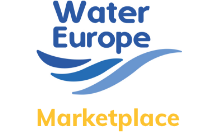
Description
Components:
- Supercritical Fluid Reactor: The core of the SCWP technology, where supercritical water (water at conditions above its critical point - 374°C and 22.1 MPa) is used as a medium for the precipitation of dissolved metals.
- Control System: An advanced automation and control system for regulating temperature, pressure, and flow rates within the reactor.
- Input Module: A system for feeding industrial wastewater containing dissolved metals into the reactor.
- Separation Unit: After the precipitation process, this unit separates the solid metal precipitates from the supercritical water.
- Cooling and Condensation System: Cools the supercritical water post-precipitation, returning it to a liquid state for reuse or disposal.
Application Scope:
- Industrial Wastewater Treatment: Especially effective for wastewater from electroplating, mining, electronics manufacturing, and battery production industries.
- Resource Recovery: Efficiently recovers critical metals like lithium, nickel, cobalt, copper, and precious metals from wastewater streams.
Key Advantages and Unique Features:
- High Efficiency: Over 99% recovery rate for various metals, significantly higher than traditional methods.
- Eco-Friendly: Reduces the environmental impact by minimizing waste and eliminating the need for hazardous chemicals.
- Versatility: Can handle a variety of metal-laden wastewater streams, adapting to different metal concentrations and types.
- Cost-Effective: Lower operational expenses compared to conventional methods, due to reduced chemical and energy usage.
- Compact and Modular: The technology's modular nature allows for scalability and easy integration into existing industrial processes.
Ground-Breaking Aspects:
- Innovative Use of Supercritical Water: Utilizing supercritical water for metal precipitation is a novel approach, leveraging its unique solvent properties to efficiently recover dissolved metals.
- Automation and Control: Advanced automation enhances the process's precision and efficiency, making it groundbreaking in terms of operational control.
Practical Functioning:
- Industrial wastewater is fed into the supercritical fluid reactor.
- Within the reactor, supercritical water conditions induce the precipitation of dissolved metals as solid particles.
- These metal precipitates are then separated from the water, leaving behind clean water and concentrated metal particles.
- The clean water can be reused or safely discharged, while the recovered metals, in forms like oxides or hydroxides, can be further processed or sold.
This technology represents a significant advancement in wastewater treatment and metal recovery, offering an innovative, sustainable solution for industries dealing with metal-laden wastewater.
Owner of the product
Sign in to access this information.Actors, their roles and interactions
-
Industries (e.g., Electroplating, Mining, Electronics Manufacturing, Battery Production):
- Role: Generate wastewater containing dissolved metals; primary source of input for SCWP technology.
- Interaction: Provide wastewater streams to treatment facilities. Collaborate with technology providers for on-site treatment solutions. Benefit from the recovery of valuable metals and compliance with environmental regulations.
-
Technology Providers:
- Role: Develop, supply, and maintain SCWP technology. Offer expertise in system integration and optimization.
- Interaction: Work directly with industries and water utilities to implement SCWP systems. Provide ongoing support, maintenance, and technological upgrades. Engage in R&D to enhance technology efficiency and applicability.
-
End-Users (e.g., Metal Refining and Processing Industries):
- Role: Utilize recovered metals from SCWP processes in various industrial applications.
- Interaction: Purchase recovered metals from industries or treatment facilities. Provide feedback on metal quality and specifications, influencing the recovery process's optimization.
Unique selling points
- High Efficiency in Metal Recovery: Over 99% recovery rate, ensuring maximum extraction of valuable metals from wastewater.
- Eco-Friendly Process: Minimizes environmental impact compared to traditional methods; reduces carbon footprint.
- Modular and Scalable Design: Flexibility to adjust to different operation scales, suitable for various industries and facility sizes.
- Versatile Metal Recovery: Capable of extracting a wide range of metals, including critical and strategic raw materials.
- Reduction in Waste Generation: Transforms waste into resources, significantly decreasing landfill disposal.
- Cost-Effective Solution: Competitive pricing compared to conventional treatment methods, with added value from recovered materials.
- Advanced Automation: Smart algorithms for process optimization, reducing operational costs and enhancing production efficiency.
- Circular Economy Contributor: Supports sustainable resource management and aligns with circular economy goals.
- Customizable Recovery Products: Ability to tailor recovered materials to specific industry requirements.
- Regulatory Compliance: Helps industries meet stringent environmental regulations regarding wastewater and waste management.
Technical requirements
Please contact riccardo.momoli@circularmaterials.it to discuss the technical requirements of the project
